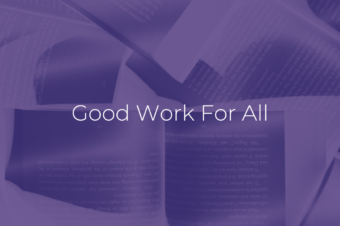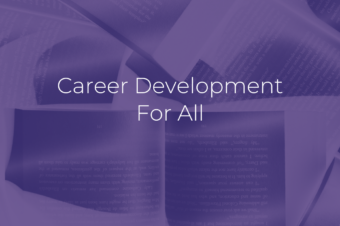
In Essentialism, Greg McKeown, CEO of a leadership and strategy agency in Silicon Valley who has run courses at Apple, Google and Facebook shows how to achieve what he calls the disciplined pursuit of less. Being an Essentialist is about a disciplined way of thinking, it means challenging the core assumption of ‘We can have it all’ and ‘I have to do everything’ and replacing it with the pursuit of ‘the right thing, in the right way, at the right time’.
Essentialism helps solve one of the great puzzles of life: how can we do less but accomplish more? An essential read for those who feel overcommitted, overloaded, or overworked – that’s all of us, right? It will change the way that you think about your priorities, embrace this philosophy and your job and life could be less stressful and more productive.
The book’s message can be neatly summed up in one sentence – “Figure out what is really important and essential in your life, and eliminate everything else to focus your efforts and achieve maximum output/contribution to society”.
Learn to say ‘no’
One key message is the importance of being able to say ‘no’ to your boss so that you can concentrate on more essential and pressing concerns you may have. The author shows how to set boundaries and say ‘no’ in response to social pressures; how to make choices in life that matter to us; and how to choose activities that are meaningful to us rather than just because everyone else is doing them.
This is about the single-minded pursuit of what constitutes the most important thing in our lives; what makes our lives meaningful for us and what will ultimately enable us to be useful to the rest of humanity. The way of the Essentialist is the disciplined pursuit of less but better.
It is not about setting goals or making resolutions, but about learning to filter all your options and choosing only those that are truly essential. It is not about doing more things but about getting the right things done. It is about making the wisest possible investment of your time and energy in order to operate at your highest point of contribution by doing only what is essential.
What really matters?
McKeown says “Only once you give yourself the permission to stop trying to do it all, to stop saying ‘yes’ to everyone, can you make your highest contribution towards the things that really matter.” He suggests you ask yourself three questions:
1. ‘What do I feel deeply passionate about/inspired by?’
2. ‘What am I particularly talented at?’
3. ‘What meets a significant need in the world?’
In essence, you choose to change your life, give yourself the power to push back and the right to negotiate non-essentials, and if you give up that right then you lose a lot of power.
Essentialism isn’t one more thing; it is a different way of doing everything. It is a discipline you apply constantly, effortlessly. A quotation at the start of the book says “If you don’t prioritise your own life, then someone else will.” That’s because if we don’t purposefully and deliberately choose where to focus energy and time, other people – our bosses, colleagues, clients, and even our families will choose for us.
Essentialism is a mindset; a way of life. It is an idea whose time has come.
If you liked this article, you might also like this one;








